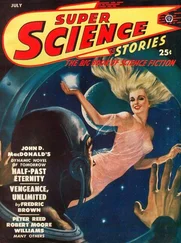The “Vunderbar” churned south, paralleling the coast. There was a change in the silver-gray day. Gusts came out of nowhere, riffled the water and faded into stillness. There was a yellowish hue in the west, a threat of storm — that sort that appears before the storm clouds can be seen. In moments a day can change just enough for the atavistic warnings to occur, that prickling at the back of the neck, a crawl and pull of flesh.
I looked at the yellow cube that was the Fort Harrison Hotel at Clearwater, landmark for local navigation, and thought about Lester and told myself they just wanted me to go back. The last annual report to the stockholders had told of an increasing load of government contracts — and the plant expansion, added shifts, increased tool procurement. That was all it was. New management stresses. A desk for Gevan Dean.
I told myself all that and didn’t believe it.
I couldn’t get it out of my mind that something had gone terribly, desperately wrong.
“You know we don’t want you to leave,” Midge said suddenly. “George and I. You know that.”
“Thanks, Midge. I won’t go back there.”
“You say that. I feel lonesome already.” Her laugh had a thin nervous flutter. “We’ve had good times.”
“Yes.”
“But not many lately, Gev. Not many at all.”
I didn’t answer her. Far ahead of the “Vunderbar” a school of fish were striking bait, hitting like bonito, sending the gouts of spray up as though a machine gun was being fired at the water. Gulls whooped and dipped. The Gulf had an oily look and the ground swell had begun to build up. Far out the charter boats were through trolling, were heading home, running for shelter.
And I had not heard Niki’s voice in four years...
Lester Fitch wore a dark gray suit, a white shirt, sedate-figured tie. In his felt hat, and with the sun glinting on the perfect prisms of his glasses he was completely out of key with the beach and the sea as he walked beside me down the sand road to my house.
I have contempt and pity for Lester. I have watched him with others, watched the excellence of his imitation of a sincere young lawyer who is going places in his profession. His act is unsure when he is with me, and perhaps with anyone else who remembers him from high school. He probably wishes no one could remember. He was one of those blubbery, ungainly kids with acne, who grew too fast and who seems to exist in order to be persecuted. He could not run fast enough to avoid torment, and had no strength to match his growth. His cry of pain and outrage was an adenoidal bellow. With those of us who remember him from then, he tries very hard to be the manly lawyer, but the mask is always slipping a bit, exposing the wariness and uncertainty underneath.
He had watched me somberly while I hosed down the “Vunderbar,” looking more than ordinarily ill at ease. I had concealed my impatience to know what had brought him down, and made the routine job last. The rich leather of his briefcase glowed in the pale and ominous light of the day. When I was through he said he’d rather talk at my place. He walked there, beside me, as out of place in Indian Rocks as one of our tanned beach girls would have been in the raw April of Arland.
We went into my small, cypress-paneled livingroom. I had left the windows closed and the air was musty, sea-damp. I opened them wide. Lester sat on the couch and put the briefcase beside him and placed his felt hat carefully on the briefcase. He crossed his legs and adjusted his trouser crease. He seemed intent on little routines, and the whole act was wrong. I didn’t know how it was wrong until I realized how he would have acted had it been an attempt to get me back into the firm. Then he would have been full of false affability, full of chat about what a nice little place this is, and you’re looking well, old boy. Instead of joviality, he was acting like a lawyer awaiting an unfriendly verdict.
“Niki tried to get in touch with you by phone yesterday, Gevan,” he said, on a faint annoying note of accusation.
“So I was told. And you flew down. I was told that too. Now you’re supposed to tell me why?”
He polished his glasses on a bone-white handerchief. His naked eyes looked mild and helpless. Usually it is possible to guess which part Lester is playing, which mask he has selected from his limited supply. This one bothered me because I couldn’t guess what effect he was trying to create.
He put the glasses on, and his smile was something that came and went quickly and weakly, a smile of nervous apology. My unreasoning forebodings had made me as nervous as he acted. I said harshly, “Get to the point! What do you want?”
“Gevan — I don’t know how to — Gevan, Ken’s dead.”
I walked to the window and looked out at the sand road, at the beach, and the oiled gray of the Gulf. The swells curled and broke. The wind had freshened. Pelicans, in single file, glided by, somber and intent. Two husky boys in blue trunks were practicing handstands. They could have been brothers.
Kendall Dean is dead.
One word. A heavy word, like something falling. It did a strange thing. It changed him from a man I thought I hated back into my kid brother. Kid brother, dead at thirty-one. It awakened all the deep, warm things of long ago, all the things I had pushed out of my mind so I could think of him only as a male who had taken my woman from me, so I could deny brotherhood and recognize only the hate and the resentment.
The hate had been strong. But one word took it away. One word brought back the good days, those good, lost summers. He was a face weeping in the window that first day when I was taken to school, because he was not old enough to go, and the days would be lonely for him without our games and projects. Cave, treehouse, hideout, secret rites of many memberships, codes and plots and complicated wars.
I remembered the day the roan threw him and broke his arm, and I walked him home and he would not cry.
I thought of him as my kid brother, and felt a terrifying remorse that we had not spoken in four years, that I had not written him, that the last thing I had done to him was hit him heavily in the mouth and knock him down. I had blamed him, and it was all changed. It had been Niki who had stolen something from me. Stolen the last four years of my brother. All dead now. Mother, father, sister, brother. Sister dead at seven, and all I could remember of her was the way she looked once, running down a wide lawn as fast as she could run, as though she ran away that day from our familiar world.
Now it seemed Niki had stolen half my life and all of his. Too many deaths. He had been the last one who gave a damn what happened to me, what I did, whether or not I was happy. I had told myself I hated him, but I had not realized these past four years that the very awareness of his existence had been a tie with all the good years.
The two boys ceased their handstands and walked down the beach, one of them carrying a yellow beach ball. An old woman in a black bathing suit bent over, fingering a pile of shells. The wind flapped the skirt of her bathing suit against suet-legs and the wind came through the window and I could smell rain and dampness in it.
Lester touched my shoulder and it startled me. I turned and he pulled his hand back.
“I... didn’t mean to break it to you so — bluntly.”
“How did it happen?”
“It was one of those crazy, pointless things.” There was anger in his voice. “It happened just after midnight Friday night, Gevan. Lord, that seems weeks ago. He and Niki were having a quiet evening. She went to bed, but she wasn’t asleep when it happened. Ken was taking a walk around the place. The police think he surprised a prowler. Somebody shot him in the back of the head. It killed him instantly.”
Читать дальше
![Джон Макдональд Area of Suspicion [= My Brother’s Widow] обложка книги](/books/430260/dzhon-makdonald-area-of-suspicion-my-brother-s-cover.webp)
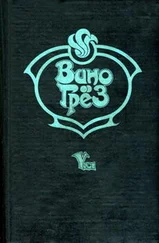
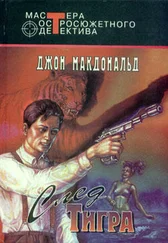
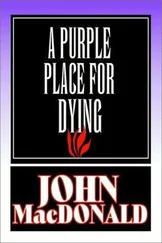

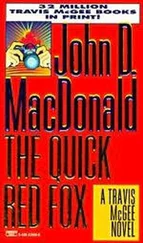
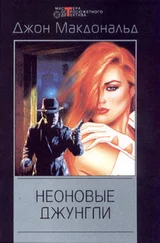

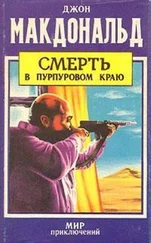
![Джон Макдональд - Wine of the Dreamers [= Planet of the Dreamers]](/books/430039/dzhon-makdonald-wine-of-the-dreamers-planet-of-thumb.webp)
![Джон Макдональд - Finding Anne Farley [= Ring My Love with Diamonds]](/books/430180/dzhon-makdonald-finding-anne-farley-ring-my-lov-thumb.webp)

